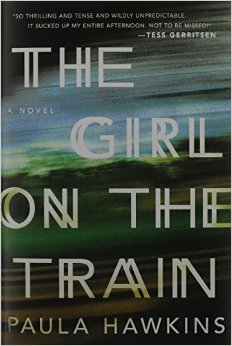 In his essay This is Water, David Foster Wallace
suggests that true freedom acquired through education is the ability to be
adjusted, conscious, and sympathetic. He goes on to develop this thesis by
describing the dreary routines that many university graduates will soon become
familiar with. He brings up a significant idea which is that during this
routine of monotony we make the assumption the world is simply revolving around
us as individuals. In our day to day lives we often fail to acknowledge the fact
that every person we come in contact with is experiencing the world in a much
different way than we are and it can be hard to comprehend and take into
consideration that they have a life beyond what we see. We only come into
contact with a few seconds or minutes of their life and in this minuscule
amount of time we make full assumptions about their entire existence. Wallace
suggests that this way of viewing the world is simply our default setting and
as humans we often fall prey to the easy route it offers us. However, we have
the option to deviate from this default setting and instead be truly conscious
of our surroundings and therefore be more empathetic.
In his essay This is Water, David Foster Wallace
suggests that true freedom acquired through education is the ability to be
adjusted, conscious, and sympathetic. He goes on to develop this thesis by
describing the dreary routines that many university graduates will soon become
familiar with. He brings up a significant idea which is that during this
routine of monotony we make the assumption the world is simply revolving around
us as individuals. In our day to day lives we often fail to acknowledge the fact
that every person we come in contact with is experiencing the world in a much
different way than we are and it can be hard to comprehend and take into
consideration that they have a life beyond what we see. We only come into
contact with a few seconds or minutes of their life and in this minuscule
amount of time we make full assumptions about their entire existence. Wallace
suggests that this way of viewing the world is simply our default setting and
as humans we often fall prey to the easy route it offers us. However, we have
the option to deviate from this default setting and instead be truly conscious
of our surroundings and therefore be more empathetic.
In his speech Wallace also brings up an interesting example of a women
whom we silently throw insults at in a grocery store line but is actually
someone who has helped us or may help us in the future. While Wallace notes
that this scenario is improbable he also states that it is not entirely
impossible, reminding us that we must be able to view the world and our
surroundings as a whole instead of simply viewing the world from our narrow one-minded
perspective.
Our inquiry question for this unit is "How can
literature develop empathy and emotional intelligence?". The theory
presented by Wallace relates to this question in a variety of ways. Focusing on
one aspect of the question, This is Water
brings up many ways in which we may become more empathetic in our everyday
lives. Literature equips us with the skill of being able to relate and
empathize with the experiences of others. However, this skill is wasted unless
we are also able to take the extra step following Wallace's advise and turn off
our default setting. Empathy is an essential tool in our lives and therefore it's
important to develop our ability to empathize with other people who may be experiencing
the world completely separate from our own experiences. In conclusion, while
literature may help us develop our empathy in the end it comes down to the fact
that we must make the conscious decision to be considerate of the lives and
experiences of others beyond what we are able to observe.










0 comments:
Post a Comment